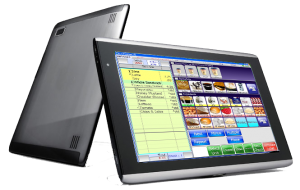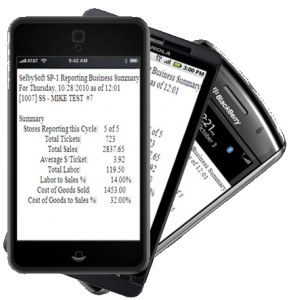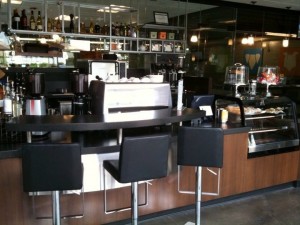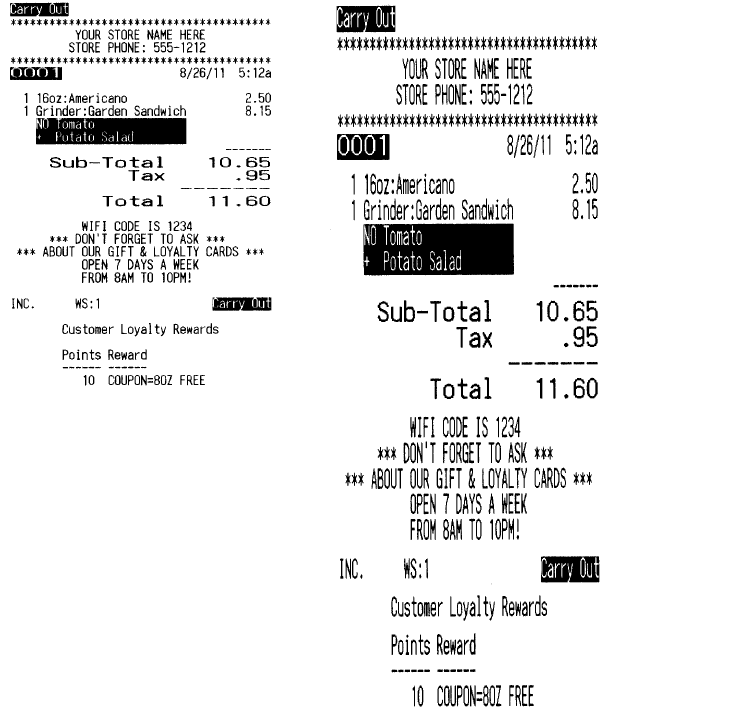Category: Uncategorized
How do you close your shifts?
How do you handle the shift closes you have? A very common way is that the employee runs the 40 column shift close report in SP-1, counts the money and then hands it all over or stores it in the lock box or safe. The challenge with this is if you have employee theft issues. Allowing the employee to count their own till and match it against a report can lead to them ‘adjusting’ the cash they have on hand.
What you should look at is doing a blind close out. This can be done by not allowing the employee to run the balance till or 40 column shift close reports. Then, when the employee finish their shift, they print one ticket with a comment on it. The comment will read something like “end of shift”. This receipt goes into the cash bag along with the till count.
At the end of the night or shift, the owner or trusted manager runs the shift close report and enters the ticket number off the receipt in the bag. SP-1 will automatically show you just the close out for the tickets during that shift ! While this puts a little more work on the manager or owner, it helps insure that the employees are accountable for their actions.
Posted in Uncategorized
4 Employee management features in SP-1
Employee management is a subject that comes up often when talking about SP-1 as a Point Of Sale. SP-1 has a number of ways to help you stay on top of your employees. . .
Let’s start with the basics. Each employee can be assigned an individual number and then clock in and out. This can be done by a code and password, swipe card or even fingerprint id. It all depends on the amount of security you need.
Every ticket created logs the employee who started it. That’s right, every ticket shows the employee code used to start it. This gives you the instant ability to ask the right employee about tickets. By the way, that’s also recorded on the end of day reports and in our audit tracking.
Assigning security levels. Because each employee is a unique number you can have managers and employees that have different security levels. This also allows you to create different responsibility levels based on the employee and not an arbitrary number.
Assigning cash drawers. Employees can be assigned to cash drawers. This allows you to better manage accountability and watch cash.
Posted in Employees, Uncategorized Tagged with: employee
Line Busting 5 ways – Using a tablet for speed of service
Hopefully you have all seen that we are now carrying a line of tablets for POS use. The question now becomes “what would I use it for?”.
Well… Let me give you some suggestions . . .
Line Busting: The most common thought with tablets is to line bust. The scenario is that your customers come in and are waiting in a line. Instead of waiting for the customer to hit the counter, order, pay and wait for the product, we switch it around some. While they are in line waiting, you send an employee with a tablet down the line for pre-orders. Now the overall perceived time spent waiting for the product is cut down. This is a great way to help in busy locations.
Pre-Ordering: This is similar but a little more involved. The goal here is to immediately engage the customer as they walk in the door. The employee takes the customers order while standing face to face with the customer. Once that order is taken, the customer can then move through the line to pay at the terminal and pick up the drink. One big advantage here is that once the order is placed, most customers are more willing to wait and less likely to leave.
Drive Thru: Take the concepts above and apply them to customers waiting in line at the drive thru. This can allow you to have an employee get out and pre-order for the drive thru windows.
Table Service: Have your server use a tablet at the table to take the customers order. This allows you to make full use of the up sell (forced modifiers) capability of SP-1 as well as speed up table turns as well as a more accurate order.
Take it outside: Do you have seating outside? Using a tablet can mean that you can dedicate an order taker to handle those orders and make it more convenient for your customers.
Posted in Hardware, Order Entry, Uncategorized Tagged with: drive thru, line busting, table service, tablet
Tablet Point of Sale Systems
 Tablets. It seems that we hear about tablet ordering every time we turn around. There are a number of companies jumping on the tablet bandwagon. Is this just fad? I don’t think so. I think the issue with most of the tablet POS systems is that they are focusing on the hardware and “cool” factor and don’t really have any substantial product from a software standpoint.
Tablets. It seems that we hear about tablet ordering every time we turn around. There are a number of companies jumping on the tablet bandwagon. Is this just fad? I don’t think so. I think the issue with most of the tablet POS systems is that they are focusing on the hardware and “cool” factor and don’t really have any substantial product from a software standpoint.
Does a tablet have a place in coffee shops and restaurants? Yes! Can they add value to a store? Absolutely! What is required is to have a stable, reliable and full featured POS software to integrate in the right way with a tablet.
SelbySoft has been working on a tablet based system for our customers for a while now and we are happy to announce that we have it ready!
This is a complete handheld unit with a 10″ screen that is perfect for mobile orders, table service and line busting or drive thru lanes.
Please call us to learn if a tablet is right for you and to see how we can help!
Posted in Hardware, Marketing, Order Entry, POS Features, Uncategorized Tagged with: tablets
Coffee Shop Design
Today we have a guest post from one of our friends in the industry. Ed Viser has worked with a number of our customers on design issues. He has always had great insights on what to look for when designing a coffee shop or restaurant and has allowed us to include some of his thoughts in this blog!
From Ed Viser– Principal Designer – Cafe Design & Architecture:
Recently, I had been asked by Specialty Coffee Retailer Magazine to provide some insight on coffee shop design and construction. Their primary reason for asking me I feel was to create a “Do-it-yourself” guide for the retailer on design and construction of coffee houses. They asked me for a rule of thumb on constriction costs etc…There really is no rule-of-thumb for the amount of money you can spend on the design & construction of your shop. Specialty coffee houses can be beautiful with a minimalist design or sport lavish décor. The key is to identify your front-of-house concept considering demographics, style, location and your budget. You might also visit other restaurants and cafés and see what works, what doesn’t work and develop or add to your personal ideas & style.
For service line ergonomic layout, some owners will do minimal coffee bars with espresso & drip or pour-over coffee; others go as far as adding beer and wine to the menu. It should be obvious, (but for first timers it usually is not), that the more you increase your menu offerings, the more expensive the equipment, infrastructure, design & construction budget will have to be. So in order to keep a lower budget, get your menu refined and then start planning.
Don’t trade experienced ergonomic design for a layout done by a part-time consultant or a local equipment dealer to cut costs! This superficial savings will cost you money down the road when you realize that your baristas lack of functionality is due to improper ergonomics, and also results in longer wait times for customers. Another consideration for economizing your design when purchasing equipment, you can most likely find like-new, (but used) equipment for a fraction of the cost of a new piece.
Speaking of functionality and ergonomics, every location has its ups and down of flow, exposure, storefront, traffic, etc. So while planning your shop, always consult a professional. A good professional will help you with site selection, location orientation, approach, signage and general visibility issues.
Louis Sullivan, a well-known architect from the Modernist Movement, said, “Form follows function”. This is especially true when you have a few dozen pieces of under-counter, and counter top equipment to plan for ergonomically. You don’t want to create overlaps in worker circulation behind your service line, nor do you want equipment to be obstructive to the patron’s experience.
In our experience aesthetically, you want to maximize your front of house exposure with good lighting and a non-cluttered setting. Good flow that is obvious is always helpful. Don’t mix styles of casual furniture; this may have been fine in the old coffee shop days like “Congo Square” inSanta Monica, when eclectic was not a bad word. Today’s specialty coffee bar requires more sophistication aesthetically. If you insist on going at it alone, you can always get good ideas from what’s around you. But in order to not make the same mistakes they made, do more research and call for a consultation from a professional designer (not to be confused with a decorator).
Ed’s contact information:
Ed T. Viser, CID
Design Principal
C 925.216.1782
ncidq certification #8672
ccidc certification #5786
877.223.3707 x511
eFax: 707.361.0953
Posted in Uncategorized Tagged with: Cafe Design, design, guest post
5 Cool Features in SP-1
I thought it would be fun to list the top 5 things you may not know SP-1 is capable of!
1) Text Ordering. . . Yes it’s true. You can setup a text message ordering system to allow your customers to order through SP-1. $10/month and the orders go right from your customers cell phone to your SP-1 point of sale! By the way – it works with Facebook & Twitter as well. We call it Social Ordering.
2) Time Keeping. . . Included as part of our software and not an extra charge. This allows your employees to clock in & out, send custom messages to employees and track multiple wages per employee. You do use this to help track your Labor Percent right?
3) Gift & Loyalty cards. . . Ok, you know we do that. But it’s pretty cool that they work as gift, loyalty, prepaid and customer tracking cards!
4) Lazy Customer list. . . People sometimes stop coming to your store. Use this feature to send customized messages to people that no longer come to your store! Remember we track TEN email addresses per customer!
5)Forced Modifiers – this is the best way to help your staff communicate with and help educate your customers. Not to mention it’s a great way to up sell effectively.
Posted in POS Features, Uncategorized Tagged with: features
QR Codes – 5 Suggestions
Do you know what a QR code is? What about how to use them?
Let’s get the definition out of the way first. . . In plain English, a QR code is simply a type of barcode that can be read by a number of app enabled phones (Apple, Androids, Blackberry etc). A QR code can contain all sorts of information in it. Most people (and businesses) are going to only use this to direct people to a spot on the web however.
So you see the funny looking square barcode – scan it with your phone and are taken to a specific website. Pretty simple.
How can you create them?
- Visit one of the links here to create one on the screen (there are more but these both work fine):
- Alt-PrintScreen (this will copy your screen to the Windows clipboard)
- Open PAINT in Windows.
- Ctrl-V (or right click your mouse and paste). This will past the screen into paint. You can then select just the qr code and copy to your documents.
- You can then save this QR Code as a picture and use it in your own literature.
So how can you use these to your benefit? Here are asdf ideas:
Here is a list of five different QR Codes that all do different things:
1) Take them to your website. It’s a great way to promote yourself.
2) Take them to your Facebook page! Let them see your specials, like your page and catch up with the store.
3) If you really want to take it to the next level, create a page on your website that cannot be accessed without going to the direct link. Then the QR points to that link. Print that QR code on your gift card and you now have a special of the month page that customers access by scanning their phone. This example shows how a QR can take a user directly to a specific blog post of mine.
4) Gift card registration. Lori at Crane Coffee does a great job by having her customers register their gift card. A QR code on the card itself can take them there.
5) Sell them stuff. If you sell bagged coffee online then this is a great way to increase sales! By scanning the last QR code above, you will be taken to one of our customers web ordering system with a bag of coffee already placed! Print this QR code on the bottom of a receipt and a customer can scan and order beans. Tie it in with a promotional code on that receipt!
Posted in Marketing, Uncategorized Tagged with: marketing, QR Codes
Larger customer and food ticket fonts!
Recently, I wrote a blog on customer receipts. The focus was that a number of the receipts out there are not very attractive looking.
After that blog post, I had some emails asking about a larger font on either a kitchen / barista ticket or on the customer ticket itself.
My support and development department looked into this and came up with a way to do it for our customers. The image on the left is the standard font and size that we typically print.
The image on the right is an example of a larger font.
Posted in Hardware, Uncategorized Tagged with: receipts, tickets
Burger King introduces oatmeal to breakfast menu or How to revamp your thinking about POS
I saw this post online about how Burger King is introducing oatmeal to their breakfast menu. BK is trying to compete with McDonald’s in breakfast sales. To me, the most interesting part of the article was the comment by an analyst that Burger King needs to revamp and remodel their stores. At least BK is thinking about ways to compete and change their own status quo.
That comment reminded me of our own struggles with customer perceptions in the past. A few years ago we realized that we had to “re-skin” our software every so often to keep it fresh and new to our customers. We had gotten to the point where the software just didn’t “look fresh”. It doesn’t matter if it was true or not, it’s a perception.
It made me think about the way people use SP-1. Honestly, when is the last time you really thought about all the reasons you bought a POS for your coffee shop or restaurant in the first place?
Think about doing a remodel on your perception of your POS! Treat yourself like you are about to do some research and look for ways our POS can help you with your store. It’s easy to get caught up in a rut and use SP-1 as a cash register but we can do so much more.
Look over the following and think about the last time you looked at these:
- Customers who have not ordered in the last 30 days report. You don’t have to do a mailing or email blast. Just run the report, look them up and call them! Tell them you know they have not been in for a while and offer a discount to get them in. Want to set yourself apart from your competition? This will do it!
- Have you looked at an employee time keeping audit report? No? Are you sure your manager is not changing the clock in time for that cute girl / guy employee? Really, your sure?
- Look at a list of your specialty coffee drinks or food items for the last year and see which account for less than 3-5% of your total sales. Get rid of them or promote them differently.
Posted in POS Features, Uncategorized Tagged with: features, reporting
How to help your coffee shop manager out!
Want to make your coffee shop manager happy? Get them a POS system. Sounds simple doesn’t it? I know, it sounds like a sales ploy to get you to buy a POS – That’s true as well. The fact is that we believe with all our heart that a POS will absolutely help you and your staff (including your manger)!
If you have taken the time to hire and groom a coffee shop manager to help manage your business, then a POS makes a lot of sense for you. Why? Because we know, through experience, that you rely on your manager to maintain the store, monitor employees and report back to you (along with dozens of other things). Without a POS system, your manager will spend part of their time focusing on putting together spreadsheets and emails so you get what you need. There is a better way.
Automate a good chuck of those tasks and allow your manager to focus on the things that are really important. Let them spend their time on coffee education, customer service, training of your staff and generally helping you make more money. With SP-1 as your POS in your coffee shop, you will see that your manager can provide the business information to you with less time wasted. Better than that is that they will have the tools available to them to monitor for themselves what is going on.
For example, your manager can see which hours are peak for sales by touching a few buttons. They can run reports to compare sales by employee to identify where training needs to be spent. You can use up sell suggestions to help not only make more money but also to open the door for customer education on differences between different coffees.
Finally, let’s not forget that YOU, the owner, have to stay on top of the manager and insure that they are doing their job right? Hourly reporting and void tracking are the best ways to do this.
Call us. See how we can help you and your coffee shop manager!
Mike.

MobileDash
Posted in Employees, Marketing, POS Features, Reporting, Uncategorized Tagged with: reporting


